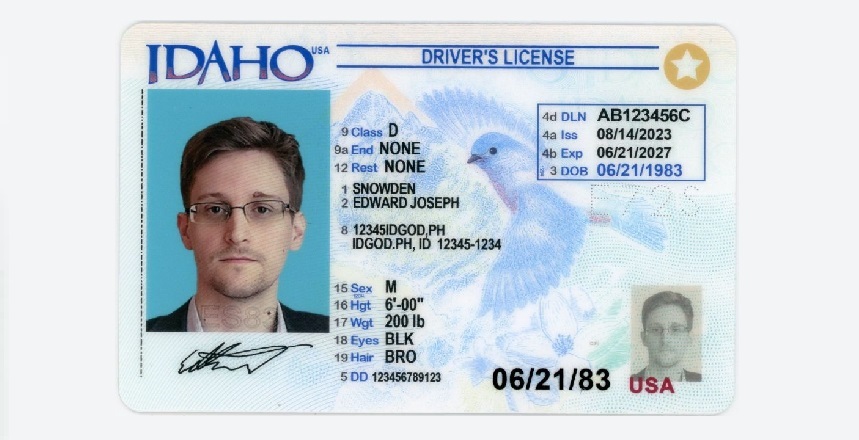
Novelty ID vs fake ID: Have you ever wondered about the key differences between a novelty ID and a fake ID? While both may look similar at first glance, their purposes, legal implications, and consequences for misuse are radically different. This guide will help you navigate these distinctions to make informed decisions while staying on the right side of the law.
We’ll cover these critical aspects in detail:
- Clear definitions of novelty IDs vs. fake IDs
- Current legal risks and penalties (updated for 2024)
- How to identify reputable novelty ID providers
- Real-world examples of legal consequences
What is a Novelty ID?
A novelty ID is designed strictly for entertainment purposes—think costume parties, film productions, or humorous collectibles. These IDs are legally required to include prominent disclaimers like “NOT FOR OFFICIAL USE” or “FOR NOVELTY PURPOSES ONLY” in clearly visible text. Many states mandate that these disclaimers must cover at least 20% of the card’s surface area to prevent accidental misuse.
Key Features of Novelty IDs:
- ✅ Bold “novelty only” labeling (often in red or fluorescent ink)
- ✅ Clearly fictional elements (e.g., “Zombie Hunter License” or “Mars Colony ID”)
- ❌ No attempt to replicate official security features
- ❌ Sold with explicit warnings about legal use
Example: A novelty ID from IDGod might feature pop culture references or absurd job titles that immediately identify it as non-official. These are particularly popular for themed events where realistic-looking but clearly fake IDs enhance the experience without crossing legal boundaries.
What is a Fake ID?
A fake ID is an illegal counterfeit designed to deceive authorities, businesses, or financial institutions. These are most commonly used to circumvent age restrictions (for alcohol, tobacco, or casino entry) or facilitate identity fraud. Modern fake IDs have become increasingly sophisticated, with some even passing basic scanning tests at bars and liquor stores.
Key Features of Fake IDs:
- ⚠️ Precision replication of state-issued designs
- ⚠️ Forged security features (holograms, UV elements, microprinting)
- ⚠️ Sold without legal disclaimers
- ⚠️ Often paired with stolen personal information
According to U.S. Department of Justice, producing or using fake IDs can result in federal identity theft charges carrying up to 15 years imprisonment. Many states now treat fake ID possession as a felony when connected to other crimes.
Legal Differences: Novelty ID vs Fake IDs
Novelty IDs
Legal status: Protected under First Amendment rights when used as intended. However, misrepresentation (e.g., altering or obscuring the disclaimer) immediately converts them to illegal fake IDs. Some jurisdictions require novelty IDs to use obviously fake names (like “McLovin”) to prevent misuse.
Fake IDs
Legal status: Classified as fraudulent documents under 18 U.S. Code § 1028. Penalties have increased significantly since 2020, with many states enacting:
- Mandatory minimum fines ($500-$5,000)
- Automatic driver’s license suspension (1-3 years)
- Felony charges for repeat offenses
- Permanent criminal record in some states
A 2024 NCSL report shows 32 states now treat fake ID possession as a misdemeanor with mandatory community service, while 18 states impose jail time even for first offenses when used to purchase alcohol.
Where to Buy Novelty IDs Legally
Important Disclaimer: These providers sell novelty IDs exclusively for legal entertainment purposes. Any attempt to misrepresent these items as genuine identification violates federal and state laws.
IDGod.ph
Specializes in premium novelty IDs with unmistakable fictional elements. Their products feature:
- 30% surface area disclaimers (exceeding legal requirements)
- Custom humorous designs (e.g., “Time Traveler Permit”)
- Explicit warnings against illegal use
TopFakeIDs.com
Despite the unfortunate name, this provider emphasizes legal compliance through:
- Age verification during purchase
- Mandatory disclaimer acceptance
- Educational resources about ID laws
FAQ
Is a novelty ID the same as a fake ID?
Absolutely not. Novelty IDs are protected free speech when properly labeled, while fake IDs are contraband. The key distinction is intent – novelty IDs make no attempt to deceive, whereas fake IDs exist solely for fraud.
What happens if you’re caught with a fake ID?
Beyond legal penalties, consequences may include:
- College disciplinary action (for students)
- Employment background check failures
- Difficulty obtaining professional licenses
See DOJ guidelines for state-specific information.
Conclusion
While novelty IDs and fake IDs may appear superficially similar, their legal status couldn’t be more different. Novelty IDs serve legitimate entertainment purposes when used appropriately, while fake IDs carry life-altering legal risks. Always verify that any ID you purchase includes proper disclaimers, and never attempt to use entertainment products as genuine identification.
For legally compliant novelty IDs: Explore our collection of clearly marked entertainment products.
Further Reading:
